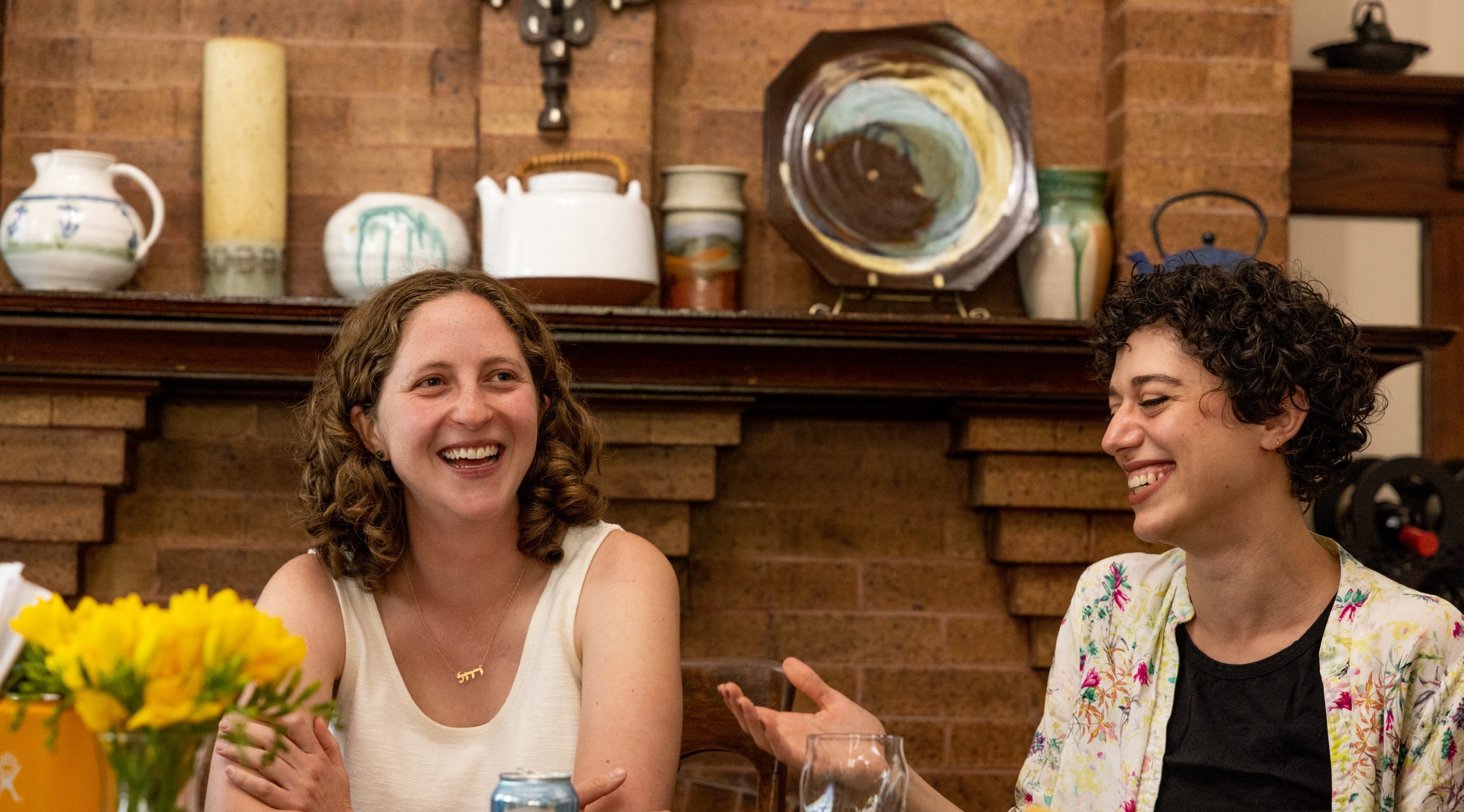
The other night our middle son, Micah, had a basketball game. We always try to light Hannukah candles together as a family, so we waited for him to come home. We wound up lighting the hanukkiah after 9 pm. (They won the game, btw–and he even had a three-pointer.) Natalie and I take fire safety seriously, so we wanted to make sure the flames were out before going to bed. So I decided to sit by the candles as they burned down.
As I sat there gazing at the flames, I realized that so many of the Hannukah teachings and practices I’m familiar with focus on lighting the candles, kindling the flames: observing the light, the idea of creating light in the darkness. Even the way we tell the story about the miracle of the oil has to do with its lighting (“It’s a miracle they found any oil!”) and the duration of the burning (lasting for eight days).
But that evening my attention was more drawn to the dying of the flames, the way they burn brightly and then, as they get lower and lower, diminish into a hushed presence. You don’t know exactly when they’re going to go out, but you can sense it’s coming–in a similar way to an animal or a person who is clearly in the process of dying. And then, suddenly, the flame is gone, a wisp of smoke rises up, and with it the smell of a candle snuffed out wafts into the air and lingers for a while.
We tend to like beginnings. They convey hope and a future. Perhaps for this reason we follow the custom of Hillel, to work our way up from one lonely candle on the first night to the majestic display of eight candles on the last. Our tradition opted for this position rather than that of Hillel’s great rival, Shammai, who argued that we should start with eight candles and work our way down to one.
In a poem she published the other day, Rabbi Jen Gubitz explores an alternative history of Hannukah:
What if Shammai was right?
What if
Each night
We go to light
And there is more darkness in our hearts
Than the night before?
What if we are not like Hillel
Cannot see the light increase
Cannot strike the match
Or have run out of wax and wick?
What if the wickedness
Of the world
Or the pain in our soul
Casts dark shadows
On the glimmering lights?
What if the miracle
Is the single flickering flame
On the last night
While the world
Tries to snuff you out?
I found Jen’s poem to be a poignantly honest expression of the Hannukah many of us have had this year–one that feels filled with more loss and heartbreak and darkness than we’ve felt in a long time, perhaps ever. What if, indeed, Shammai was right?
But I also want to end on a hopeful note, and for that I look to the Torah portion. Specifically, I look to a wordplay that happens in the Hebrew. In verse 53 of chapter 41 of Genesis, the Torah writes, “the seven years of plenty came to an end.” The opening word of this verse is וַתִּכְלֶ֕ינָה, vatikhlena, “they came to an end.” It comes from the same word that marks the completion of the six days of creation at the very beginning of Genesis, vayekhulu.
Now comes the wordplay: The next verse reads, “and the seven years of famine began.” The first word is וַתְּחִלֶּ֜ינָה, vatchilena, “they began.” The two words sound almost identical–but they mean precisely the opposite of one another. One is an ending, the other a beginning.
While the meaning of the text could have been conveyed in many different formulations, the Torah, through this exquisite little move, seems to go out of its way to gesture toward something else–a poetic expression, perhaps, of the reality that every ending is, indeed, a beginning; or, put differently, what we believe to be endings and beginnings are illusions. This is, in so many words, exactly what Joseph tells his brothers in next week’s Torah portion: “God sent me on ahead of you to make you a remnant on earth” (45:7). What they thought was an ending was, in fact, a beginning.
We are constantly living through endings and beginnings. Some are hopeful, some are painful, many evoke a jumble of feelings. As the final candles in our hannukiot burn down and those wisps of smoke ascend heavenward, may our practices help us live through every moment of transition (which, in reality, is every moment) with ease, wisdom, and peace.

